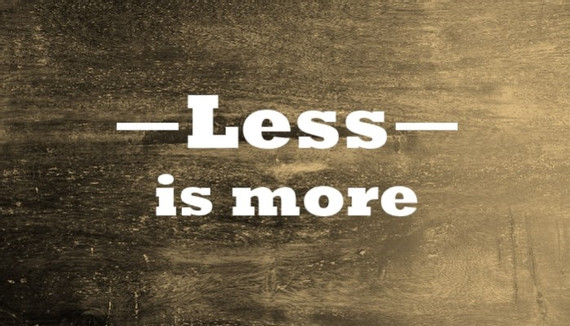Entrepreneurs and businesses owners, more than any other group of people, may have the most difficult time focusing on the vital few things that will generate the greatest possible result. Sure, we are a talented and ambitious bunch with great capacity for success. But that great quality can often be our downfall. Our ability to accomplish much drives us to seek wins in so many areas. We may win more, but our effectiveness goes down with each new responsibility. (Even now, I wonder if I’m supposed to be writing this blog?)
Now before you excuse yourself by saying that you are just struggling and fighting to run your own business, let me remind you that you likely have the savior mentality in your company. Trust me, I’ve suffered from this illness. Michael Gerber once described such business owners as those men women who walk around with their chest proudly stuck out boasting: “This business couldn’t run without me. It needs me or it would fail.” Owners like this spend their time putting out fires, running all over the business to keep all the balls in the air. They focus on everything because they believe everything is important. But trust me, such lack of focus has never built a great company.
After reading a marvelous book by Greg McKeown titled Essentialism: The Disciplined Pursuit of Less I want to challenge you to rethink your role in life and janitorial business. Let’s face it, you can only be great at a few things. As you spread yourself out, your effectiveness goes down. A business owner who attempts to control every aspect of his business will have a business that never outgrows the owner. A spouse and parent who overextends into too many ventures and causes will soon find they have neglected two of their most important duties. They will have pursued much, but achieved little.
Let me offer three simple suggestions to help you cut out the crap, narrow your focus, and achieve more by focusing on less.
1. Identify what is important. Take some time to introspect and assess your life. What is important to you? What 3-5 things matter most and what do you hope to accomplish with each. What activities will it take to accomplish those things? Let’s use your business as an example. You want to be a $3M company with 2 branch offices providing awesome service to 100 clients. Identify how you will get there and what you must do to make that happen. This gives you intentionality and clarity of purpose. You can now have the framework within which to say “no” to opportunities that would distract you from this goal. Whatever you deem important, the key is being disciplined about having a laser sharp focus on those things. Distraction is nothing more than a betrayal of the important things in your life.
2. Eliminate 5 unnecessary items RIGHT NOW. If you have successfully completed step one, you should be able to identify numerous time-robbers in your life. Anything that takes away from your mental clarity/health and your ability to focus on what is most important should be reduced or eliminated. What is it for you? Facebook? Unnecessary lunches with colleagues? Repeatedly scanning the news headlines? Being a member of a local board? A side business venture? If it is not helping you accomplish what is most important in your life, why pursue it?
3. Give yourself margin. Achievers of great things, regardless off their field, have this in common: room to think, rest, reflect, and recalibrate. Don’t buy the lie that you can achieve more by squeezing more into your day. Adequate sleep increases mental clarity and output. Reflection affords you the chance to sift through options and ideas, harnessing your creative capacities. Doing, doing, doing only limits your mental output, the true genius behind your physical abilities. You don’t have time not to rest, reflect, and recalibrate.
Below is a download for a worksheet designed to help you assess your life and business, take stock of where you are today, identify key issues, and put together a plan to move forward. I personally fill one of these out every month. I would encourage you to do the same. Failure to plan is planning for failure.






